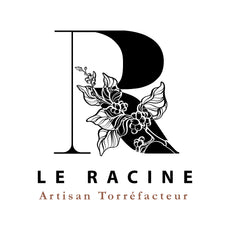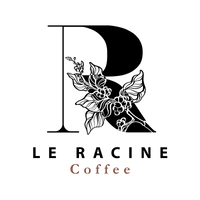The terroir of Minas Gerais in Brazil is a gem for coffee from
speciality. High altitudes, rich soils and ideal climate
offer an ideal environment for the cultivation of exceptional coffees.
The varieties grown in this region are distinguished by their
complex flavor profiles, ranging from sweet and chocolatey notes to
floral and fruity aromas. The region is also recognized for its
innovative treatment methods, such as the natural process and
honey process, which contribute to creating unique coffees with character
refined. The terroir of Minas Gerais is an inexhaustible source
of inspiration for coffee lovers seeking rich flavors
and balanced in every cup.
Brazil SAN JOSE
SCA score: 83+
A single origin coffee rich in dark chocolate and hazelnut notes, expressing the best of what Brazil has to offer.
Cultivated in a unique ecosystem, within vast expanses of forests, rocks and mountains, within the Fazenda Dutra, 'San Jose' which takes its name from the plot of the same name and one of their oldest ' plots', is of particular importance, as it was once the property of Dutra's grandparents, the pioneers of coffee production in the region.
Certified organic farming


Walter and Ednilson Dutra
The Dutra family now grows over 700 acres of coffee. They produce 18,000 bags per year, 6,000 of which are specialty coffee quality. They represent the best example of specialty coffee in Brazil. The secret to their success lies in passion, hard work and a constant commitment to quality improvement!
Your frequently asked questions
How do I store my coffee?
To keep your coffee fresh and tasty, here are some tips:
Store it properly: Coffee should be stored in an opaque airtight container, preferably glass or ceramic. Avoid transparent containers, as light can affect the quality of the coffee. Also, make sure the container is tightly closed to avoid exposure to air.
Keep it away from heat, light and humidity: Coffee is sensitive to heat, light and humidity, as they can accelerate the spoilage process. Keep your coffee in a cool, dark place, like a cupboard, and avoid storing it near the stove or any other heat source.
Don't put it in the fridge: Contrary to popular belief, storing coffee in the fridge is not recommended. Humidity and odors from the refrigerator can alter the taste of the coffee. Additionally, coffee tends to absorb flavors from other foods in the refrigerator.
Grind the coffee just before use: If you buy coffee beans, it is best to grind it just before preparing it. This preserves the freshness of the aromas. If you buy pre-ground coffee, be sure to consume it within a reasonable amount of time to enjoy its optimal flavors.
Stick to the recommended use-by date : Coffee has a recommended shelf life, which is usually indicated on the packaging. Try to respect this date to fully appreciate the freshness of the coffee. However, keep in mind that coffee quality may begin to deteriorate a few weeks after the roast date.
By following these tips, you will be able to preserve the freshness and flavor of your coffee for a longer period of time. Enjoy every cup of delicious coffee!
What is a score?
The Specialty Coffee Association of America, created by Erna Knutsen, defines a rating grid* (The Green Arabica Coffee Classification System (GACCS)) consisting of physical and sensory criteria to assess the quality of a coffee.
The SCA score is based on a tasting scale that rates different aspects of coffee, such as aroma, taste, acidity, body and aftertaste (aftertaste). Each aspect is scored individually and then an overall score is given to the coffee.
The SCA scoring system ranges from 0 to 100, where a coffee gets a higher score if it exhibits higher quality characteristics. Specialty coffees, which are considered the highest quality coffees, typically have an SCA score of 80 or higher.
On a scale of 100 points, a coffee is said to be "specialty" if it obtains a score of at least 80:
+ 88 Grand Cru coffees
+85 Exceptional coffee
+80 Very good specialty coffee
A specialty coffee therefore meets three minimum requirements:
- Hand picking of ripe beans only.
- Rating 80 or more/100
- No major defects and less than 5 minor defects.
What does the word "method" mean?
Coffee preparation methods vary widely, each
approach offering a unique taste experience. The method of
Filtration, often used for drip coffee, involves
a slow process of infusing water through ground coffee, producing a clean, balanced cup. In contrast, espresso is made by forcing hot water through finely ground coffee, creating a concentrated, intense, creamy drink. As for the methods
alternatives, such as the French press or the V60, they allow
precise control of time and water flow, providing profiles of
distinct flavor. Each of these methods brings its share of aromas and textures to satisfy the most demanding palates.




















